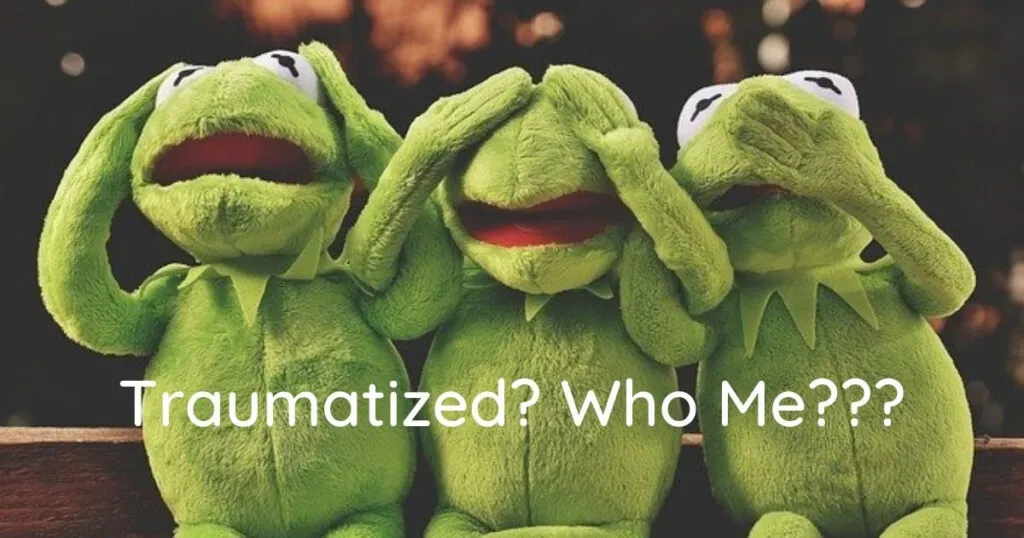A Trauma Therapist
Describes Big T &
Little T Trauma
Mar 8, 2022 | By: Hope for the Journey
Have you ever been guilty of saying, “What happened to me is no big deal. Other people have had it much worse.”? If so, you are not alone. Most people struggle to acknowledge that what they went through can be defined as a trauma. It is as if you somehow do not have the right to heal from your situation. All because it doesn’t seem as bad as what someone else went through. As a trauma therapist, I’m here to validate your experience. I help my clients learn how to give themselves space and recognition. By doing so, they can learn to heal from any situation; big or small.
“Big T” Traumas Are Widely Acknowledged as Trauma
Oftentimes, we associate the word “trauma” with extreme bodily harm, sexual violence, or death. Or, an experience that threatens to cause these things). Some examples that may immediately come to mind are:
- Being in combat zones
- Experiencing a natural disaster
- Being in a deadly car accident
- Or being sexually assaulted
These events are known as “big T” Traumas. People who experience these situations tend to experience a distressing trauma response in the aftermath. As a result, they may even meet the criteria for Posttraumatic Stress Disorder. But, these are not the only situations that may cause significant and valid distress for someone.

“Little t” Trauma Is Still Trauma
“Little t” traumas are situations that feel disturbing or distressing to you on a personal level. But, they may not rise to the level of threatening your physical safety. Examples of “little t” traumas can include:
Getting cheated on
Being bullied
Being fired
Displaying a poor performance in public
The passing of a pet
Feeling unloved/unlikeable as a child
These experiences don’t jeopardize your safety. But, this does not mean that they should be dismissed or pushed down. These situations are still known to cause valid emotional distress and upset. In fact, this can sometimes occur years later. You may find that you are often thinking about it and that your quality of life has decreased. “Little t” traumas can cause a similar trauma response to “Big T” traumas. Especially if you experienced many of them over many years without processing them.
Consequences of Experiencing “Little T” Traumas Can Include:
Low self-esteem
Increased anxiety and/or worry
Mistrust of others/relational conflict
Increased isolation
Increase in substance or alcohol usage
Increased instances of tearfulness or feeling sad
Increased irritability
These are all things that you shouldn’t have to suffer from on an ongoing basis! You are worthy of the necessary time and space to address these resulting struggles!

Unresolved Traumas (both “Little T” AND “Big T”) Can Be Healed
You may not believe that you have the time or energy to better manage these symptoms. You may have other immediate obligations. This may include caring for kids, getting through school, or meeting work deadlines. But, when you notice and address emotional concerns, you will notice that you have more emotional energy to handle the other things in your life. Because believe it or not, it takes emotional energy to avoid or push down a trauma response.
Exploring and responding to your trauma response can happen one step at a time with even only a few minutes. Most people with a trauma response need the help of a trauma therapist to heal completely. But, there are some things you can start working on now that can help. Some real-life examples include:
Tip From a Trauma Therapist in Austin, TX #1: Create a Helpful Routine
A universal component of a traumatic event; both big and small is that we rarely have control over it. This can cause us to feel helpless and even stuck in a spiral of unhelpful thoughts. Creating a routine is a consistent and predictable way to maintain some control over your day. It can be as simple as choosing a preferred song as your alarm tone in the morning. Or, going on a walk when you get home from work.
Tip From a Trauma Therapist in Austin, TX #2: Actively Value Yourself
Your outward actions are known to have a remarkable impact on how you think and feel. Our actions are one of the only things that we do have control over. If you are active in showing yourself that you’re valued, your thoughts and feelings will follow suit. Do one thing a day that you truly enjoy.
Tip From a Trauma Therapist in Austin, TX #3: Pay Attention to Your Negative Thoughts
The first step to changing something is knowing when and where it occurs. If you pay attention to when your unhelpful thoughts occur, you can then create an internal barrier so that they don’t continue to escalate. For example, you notice that you think “I am a failure” whenever you receive feedback at work or school. You can create a helpful internal response to this thought. For instance, you might remind yourself, “I did the best that I could.” The more that you repeat the helpful statement to yourself, the more that you are going to believe it.
Do you find yourself still struggling? If you would like extra support, feel free to reach out to a trauma therapist at Hope For The Journey. We all have extensive training in treating symptoms of trauma. We would be honored to be that safe space as you continue to explore and heal from your traumatic experiences. Regardless if they are big or small.
Begin Online Trauma Therapy in Texas
Our team understands that trauma is different for every individual. This is why our team of caring therapists would be honored to support you in overcoming past trauma. We are happy to offer support from our Round Rock, TX-based therapy practice and online across the state. To start your therapy journey, please follow these simple steps:
Other Services Offered with Hope For The Journey
Trauma therapy isn’t the only service our team offers from our Round Rock and Austin locations. We also offer therapy for depression, domestic violence, sexual assault, and anger management. We are happy to offer our services to children, teens and young adults, men, couples, and the LGBTQ community. Feel free to learn more by contacting us or visiting our blog today!
